Lee Wallace worked is bringing Peace Coffee, a fair-trade coffee company started in Minneapolis nationwide. We revisit her nearly 4 years after our first visit (Season 1 Episode 97)
Stephanie [00:00:13]:
Hello, everybody, and welcome to the makers of Minnesota podcast. I am your host, Stephanie Hansen, and I'm here today with a guest that I had, boy, probably back in year one of the podcast. I'm here with Lee Wallace. She is the CEO of Peace Coffee. And we talked such a long time ago, lee, it's like it may as well have been a different universe because you were just launching coffee shops at that point. And like any evolving business, your whole model has probably shifted again. So let's just go from pre pandemic. You had some coffee shops you guys were selling in stores and get us caught up on what is happening with Peace Coffee now. And welcome to the program, first of all.
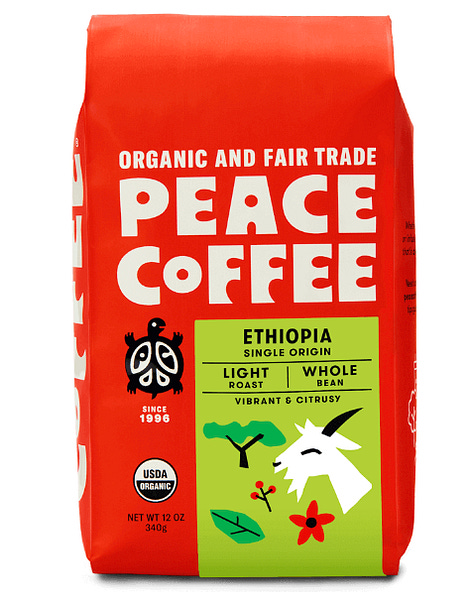


Lee Wallace [00:01:01]:
Yeah, thanks for having me. I'm happy to be here. Sure, absolutely. Somebody was asking me a question the other day and I was trying to put things together and I was like, oh, timelines are so weird now, and it's so hard to reconstruct everything, but yeah, in 2019, we had four coffee shops. We had three in downtown Minneapolis and one in the Longfellow neighborhood. And we were working on beginning to think about, okay, we've always been sold all across the country, but really we're beginning to take our first big steps toward what does it look like to begin to scale more nationally and then COVID hit and closed the shops immediately. Well, after we learned that we had to close the shop. March 15 ish yeah, March 15 ish closed the coffee shops. And the good news about being in coffee is it's not like people are going to stop drinking coffee just because of a pandemic. So what happened was really our business shifted quite dramatically. So prior to the pandemic, our number one product was five pound bags of coffee. And those were going to colleges and universities, offices, bulk sets and co ops, bulk sets and specialty grocery. Everything that went away during the pandemic. Right, that's mainly where those five pound bags of coffee are going. And then our second most best seller would be a twelve ounce bag of coffee. Well, all of a sudden, everybody's drinking coffee at home, and so those twelve ounce bags of coffee just started disappearing. And so then we pretty quickly realized, wow, it takes just as much work to bag put £5 of coffee in a bag as it says to put 12oz of coffee in a bag. So we added a second shift. So we were able to bring some of our coffee shop employees back in because we had to add a second shift just to bulk up on the amount of twelve ounce bags we were able to produce. That was a really good sign. The other thing that started really taking off was online. Like everybody else, our peacecoffee.com business just exploded because it's a super safe way to shop. So I think that business grew 300% and we're still continuing to grow that platform. But all of a sudden we have this sizable ecommerce business. So food service went away, but people started getting their coffee in other ways and it was a scramble. But we figured it out and I consider us to be talked to my friends in restaurants during that time. The struggle was real. We needed to I always call it log. Like it feels like log rolling, right? When you're an entrepreneur, you're just trying to stay on the log. Right?
Stephanie [00:03:59]:
Good analogy.
Lee Wallace [00:04:01]:
We just had to do some log rolling during that time. But yeah, and then as time went on and our growth continued and we began to get into more national accounts and we began to grow into more of a national business, the decision seemed pretty clear. Like, let's focus on this part of our business. Let's not reopen the coffee shop. So we had shops for about ten years, learned a ton, but we're focusing on our wholesale business now.
Stephanie [00:04:35]:
So how did you leapfrog from a Minnesota based coffee maker company to national? Was it simply because of the online activation and really being more robust there that people in other markets found you or how did that work? Was it intentional?
Lee Wallace [00:04:55]:
It was intentional. I bought the business in 2018 from the former owners and part of my desire to do that was to be a little bit more aggressive on the growth front. And I will say it probably all tracks back to Target and we have done a really good job and we've built a really good partnership with them and they've done a really good job. From our first meeting with Target years ago, they were saying, look, walk before you run. And that always has been my growth mentality. So I know it's so easy. We're entrepreneurs and it's so easy to be like, yeah, I want to be in every Target store. Well, some really big businesses have done that and they failed. So with us it's been incrementally growing our store count every year with Target, the coffee buyer there's great and just helping work with him to say, okay, here's some new geographies where we see we've done well in a small grocery store chain or things like that. And if we can prove ourselves in a new geography, then typically in our next review meeting with the coffee buyer, Target, he'll take that information and work to expand our store count. So we have yet to learn what our growth is going to be this year with Target, but we have a pretty solid track record of just going into new geographies. So at this point we're like Michigan down into Denver and then Oklahoma, Texas kind of that's our path with growth with Target. And then we've also had really solid growth in the Natural Channel. That's a great home for us. So we got into all the sprout stores which go from California to Maryland in the past two years. And so then you can use that case study. We're very strategic in terms of demonstrating a good case study and then using that to find other retailers that we want to be in.
Stephanie [00:06:53]:
So you mentioned earlier, and I've heard stories about people, they get into Target and it's super exciting. And then you realize just because you're in Target doesn't necessarily mean people will buy your product and it's harder to get that pull through. I have a sneaking suspicion that your packaging has a lot to do with people's brand trial of you. And then they like the product and they're like, oh, this is good, I'll buy it again, what do you attribute that first purchase a piece of coffee to when someone's standing in a Target aisle looking at coffee?
Lee Wallace [00:07:29]:
I think you're right. I think ideally, your packaging is going to work really hard for you. And we've made a very intentional decision with our packaging to a try to put the most important information and make it really easy for people to find the most important information. We have not done that well on previous versions of our package. So I think we've learned over the years and iterated over the years and I think it's important to update your packaging as you learn things. Two, I think the way we position the brand stands out in the coffee category. I think a lot of coffee companies tend to come across as very serious. And what we know about coffee and the consumer research on coffee is coffee is very emotional for people. It's me time, it's their morning ritual. I don't know, I don't need to be really serious during me time. It's okay for someone to say, you be you enjoy yourself, have a good time. We're doing all the hard work for you. And I think we're not saying to folks, drink this cup of coffee and it's going to change your life. We're saying drink this cup of coffee because it does good things for other people. And I think that stands out as well.
Stephanie [00:08:52]:
And we know, and you were so early adopting in this the brand from the get go. We know that people like to make purchases that help the community, help the environment, give back. And you've made it real easy and it's been a huge platform for you from the get go. And it's almost like it's baked into your company logo, your persona, everything about peace. Coffee feels like that give back movement. So it was very timely and prescient that that was the brand ethos from the get go because you didn't have to work so hard to create that after the fact.
Lee Wallace [00:09:36]:
I give consumers credit, right. I think they can tell the difference between a brand that was built around the sets of values versus a brand that was reverse engineered to try to appeal to consumers. They're smart. It's been interesting over my career to go from being kind of the outlier to now being mainstream. Right. I've been doing the same thing the whole time, but somehow my sets of issues have become mainstream now, which is great. I love it. Super fun. Yeah. But yeah, I think people can sense that in the brand.
Stephanie [00:10:15]:
How many people are in the company now?
Lee Wallace [00:10:17]:
We have about 55 employees.
Stephanie [00:10:21]:
Yeah, it's not small.
Lee Wallace [00:10:24]:
Yeah, smaller than when we had all the shops. Right. Then we had like 80 some staff members. So interesting. We're not a small company. We still feel like a small company. I still feel like I run a small company. But then yeah, I also forget that I've been doing this for a while.
Stephanie [00:10:45]:
So let's talk about the Keurig pods, because you guys have gone into that technology too, and it's so convenient to do a Keurig, and it's such a huge part of wholesale, obviously, with hotels, and it's really handy. But there is a lot of talk about the pods themselves and are they disposable and how do you compost them and how does that work? Tell me about your specific trajectory in that profile.
Lee Wallace [00:11:14]:
Yeah, obviously pods have been out there for a long time, and obviously we have not participated in that segment of the market for a long time as specialty coffee has become more mainstream, if you will. And as people have said, oh, I'm interested in exploring beyond Starbucks and exploring local brands or exploring smaller brands than Starbucks or more unique brands. We've seen people kind of work their way into the category. And I just began reflecting on is there an opportunity, if we can find the right product, is there an opportunity in the pod space to similarly introduce people to specialty coffee? What consumers tend to do, and you can see this with Starbucks, right? So as people start to explore coffee, and a lot of times now it's happening when people are teens, right? But they start with sweet and creamy and then they kind of ladder up into a different experience. And I began thinking, there got to be pod people out there who love a K Cup but want a different set of things alongside that. Maybe it's a higher quality coffee bean, maybe it's a more eco friendly way of getting that kind of coffee. And so it just seems like the right time to explore. Is there a consumer in that space whose needs aren't really getting met in terms of both quality and the sustainability of the solution that we're offering? So we began searching for solutions to reach that consumer. And one of the really interesting things about coffee is that one of the biggest sources of waste associated with coffee is actually the coffee that gets poured out of the pot at the end of the day. And so when I really began reflecting on that and specialty coffee sort of traditional belief that the pod person doesn't want a really premium coffee experience. And again, thinking, I think we're missing part of the equation here, because I know I don't brew a pot of coffee anymore, but when I did have a pot of coffee, I would pour a lot of coffee away. And there is space for that single cup experience, and there's space for people who are really busy and have a bunch of kids and just need to make their darn cup of coffee, right? And then it's like, okay, well, if we're going into that space, we've got to do it the piece way, which is to do it in a sustainable way. So we found a solution. There's no plastic cup. The bottom is just mesh, so it can be composted the same way your coffee filter can be composted. And then the ring that supports it is made out of a combination of mainly wood and corn, which is fully compostable in commercial composting settings. So not in your backyard, but if you either drop your compost off or get it picked up curbside, you can put it in there. And so that to us, felt like this is an expression of who we are and we can launch this product.
Stephanie [00:14:33]:
I love that you talked about the last bit of the pot getting thrown away because I think about that because my husband and I are just two people and we're big coffee drinkers. And there is it seems like either we drink the whole pot and then we make another half and there's that last bit. I have ice cube trays and we make ice cubes and we try to repurpose and reuse. But no matter how you do it, sometimes you just end up pouring out some coffee. So it's interesting, we've talked about a single cup mostly, I think, for the afternoon and the evening coffee drinking too, where you're going to have a decaf maybe, or you're going to have something that feels like a little elevated experience that you're just going to have the one I don't know. It does feel very different than your morning pot to me.
Lee Wallace [00:15:20]:
And it's interesting how many people own both. So I got Reese Consumer Research that said a lot of people own both a single cup brewer and a larger brewer. Whether they're holding the larger cup brewer for when they have company over or they use the single cup during the week and they use the larger cup on the weekends. So yeah, a multi cup on the weekends. So yeah, people own both, which was totally new to me.
Stephanie [00:15:45]:
Okay, so Peace Coffee has a huge reputation as being a great local Minnesota company. Now you're in I'm just going to throw a market out there, let's just say Maryland, where you don't have this huge Minnesota following. You don't have that touchstone. When you are introduced to a market like a Maryland, how do you do the marketing and what do you do different? Because it has to be a completely different approach for getting pairs of eyes on your coffee inside the store.
Lee Wallace [00:16:20]:
I think the key is really to understand the retailer that you're in and then the way that they run promotions. Your biggest tool as a growing brand, because I can't market to the entire state of Maryland in a Florida, right, of course, right. What we find is, okay, we're getting to Sprout stores out of the population of Maryland. How many of them reasonably go to Sprouts? I mean, we can do good business in Sprout stores, but you can't use the shotgun and say right. So I think your number one tool is really get those sale tags up. Right. I mean, first make sure you get on shelf, properly support the product, make sure the execution is right. Then it's really have the correct promotional strategy to really drive trial. So people say, oh, this is new. Oh look, that packaging is cute. Oh, it's fair trade and organic. Obviously you've got a really good product in the bag that I would say put out because if people buy it once they don't like it, you're done to the beginning. But then I would say, yeah, number two is making sure you have the right promotions. And then we have expanded our investment in digital marketing quite a bit. So finding our consumers, whether that's finding our consumers and running promotions specifically targets to them. So people who like Fair Trade organic coffee, then I would say also we're investing in the retail platforms themselves. So different platforms, consumer. Yeah, and then the last piece would be just supporting with digital marketing as it makes sense. But I think the best lever that brands have really is promotions.
Stephanie [00:18:10]:
And I think sometimes people are afraid of those because they're pretty expensive in a store. And I guess it makes so much sense. Like here is this brand that has welcomed you into their store and they are giving you all these mechanisms with which to reach their customers, but they all cost money. I mean, that's kind of the hidden part of it that maybe consumers don't know. But why wouldn't you be totally investing in those platforms? Is it just because they're too expensive or people? I can't imagine why you would think that. You don't need to do that.
Lee Wallace [00:18:46]:
I mean, the reality is that it's the best way to get people to try your product for the first time. And if you can't grow the number of people who are repeat purchasers of your product, then it makes it really hard to stay on shelf. And that also is very expensive. It's very expensive to fall off a grocer shelf in terms of a it sets you back, you're not bringing that revenue anymore. B, there's going to be a bunch of products that has to be discontinued, things like that. So I get it. And we look very carefully at retailers before we go into them. It's not like we're sitting here and people are coming to us. I don't want to give anybody the impression that we're just sitting here and people are coming so we're saying, no, we don't want to be on your shelves.
Stephanie [00:19:33]:
But you're more mature.
Lee Wallace [00:19:35]:
Yeah. We're thoughtful about who we're trying to partner with. And one aspect of things that we analyze is how expensive is it to do business with this retailer? Do they require a ton of free product? Do they require slotting fees? Are they going to have minimum or maximum expectations for promotions? How does that fit within? We have a certain percentage of sales that we want a certain percent of our revenue. I mean that we say, okay, we're going to budget x percent of revenue for trade support. And so we really need to understand what retailers expectations are.
Stephanie [00:20:12]:
I see. So being really thoughtful and maybe not moving too quickly into a retailer even though it looks like it'd be a great opportunity because if you can't afford to market properly while you're there and then you get yanked again, I've never thought about that. And that's a really good thing for emerging brands to think about. Even though you get invited to a retailer, make sure that you are prepared both emotionally, psychologically with your team, but also financially to be able to support the launch in that retailer.
Lee Wallace [00:20:47]:
Yeah. Look. Peace coffee. I have a friend who always jokes that Peace Coffee is the 25 year old overnight success. Right. There are some companies that are designed to be rocket ships and good for them. And sometimes you just have to recognize that it's a slog and incremental growth. Steady incremental growth is a way to do it. And it's been our approach. And I think we're finally to the point where we can say we have a banner in every part of the country that you could go in and find Peace Coffee. And then you get to that point. Then it makes it that much easier with, oh, you can find us here or you can find us here.
Stephanie [00:21:30]:
Yeah, I have a van and I travel around the country in my van for fun and I have seen your coffee in way more states all of a sudden and I'm like, oh look, they're carrying Peace Coffee. I was in Palm Springs the other day and a local salsa was on the shelf. I was like, oh look. It's fun to see other Minnesota brands making it out in the big bad world, as it were.
Lee Wallace [00:21:51]:
It is so funny. I was just in Fort Lauderdale visiting family and my sister in law said to me, where can I get Peace Coffee? And I said, actually, you can get peace coffee at Sprouts. And it was fun to be like at this point where I'm like, oh yeah, I can help most people find our coffee at this point in time.
Stephanie [00:22:08]:
I can refer you. Okay, totally. Random question. If you were going to launch a product today and it's brand new, is there, like, a product that you're like, oh, I wish that that would be a fun product to work on, or something that just you think, oh, that would be really fun.
Lee Wallace [00:22:29]:
I am such a food person at this point in my life. It would have to be food, because that's really what I know. And Stephanie, I have these thoughts all the time, but then they just, like, tumbleweed.
Stephanie [00:22:49]:
And I knew it would be, like, a weird, oddball question, but sometimes people are like, oh, I wish I could work on that.
Lee Wallace [00:22:57]:
Yeah, well, if I wasn't, I mean, I'm also a beverage person, so I would say probably it'd be totally different. But I would love to work on a high end craft spirit kind of launch. I think that would be super fun. And working on growing something in that segment would be a ton of fun just because it's sort of the counterpart to coffee, right? Yeah.
Stephanie [00:23:24]:
Maybe you and my friend Heather Manley at Crooked Water Spirits need to do a coffee collaboration because yeah, very delicious.
Lee Wallace [00:23:32]:
Yeah, it could be very delicious.
Stephanie [00:23:35]:
All right, well, it's great to catch up with you, Lee. Thanks for getting us caught up on where you're at. And good luck as you continue to have your United States domination of peace coffee. It's been super fun. We'll talk soon.
Lee Wallace [00:23:49]:
All right. Thanks, Stephanie.
Stephanie [00:23:50]:
Thank you. Bye.


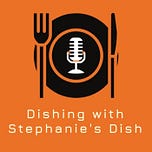

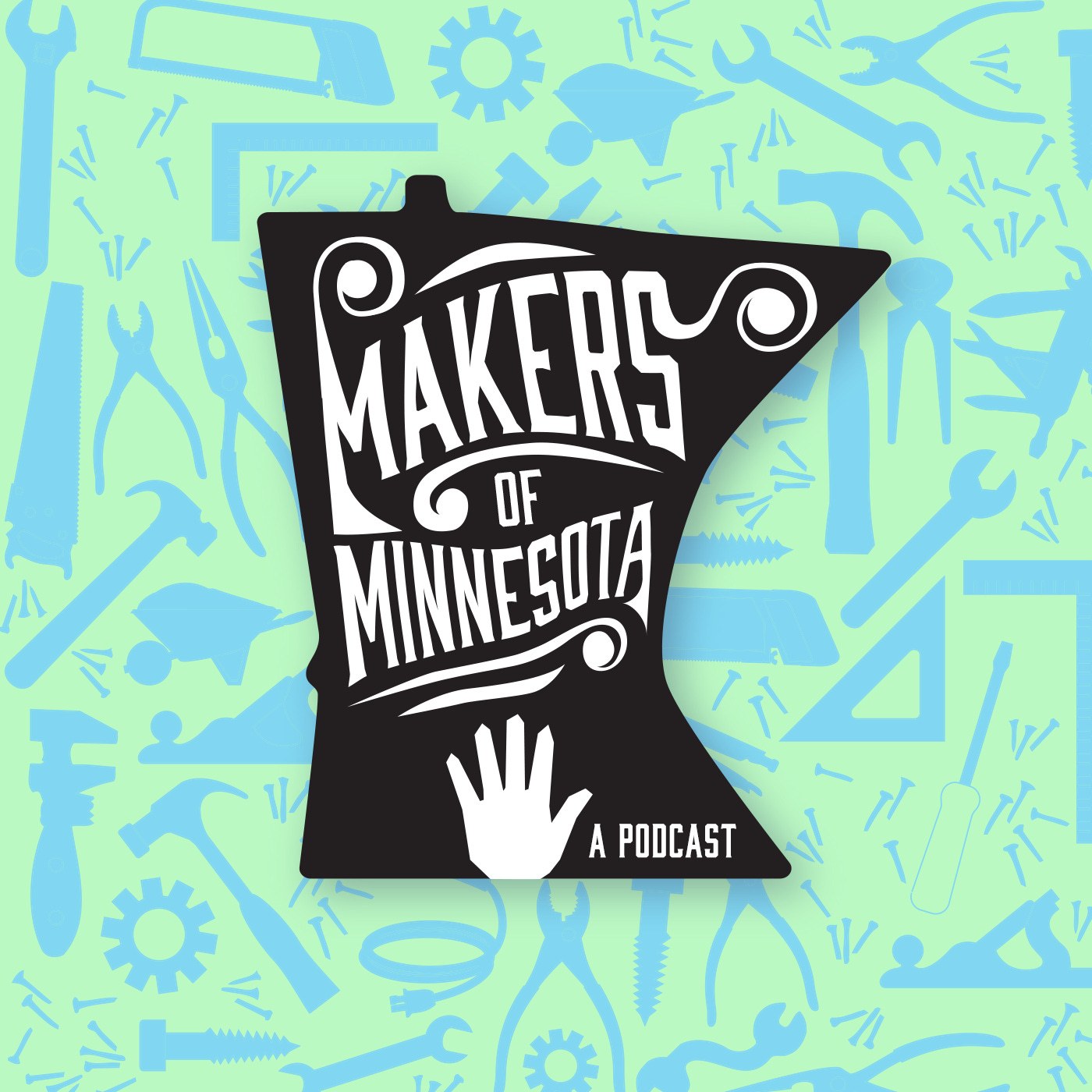

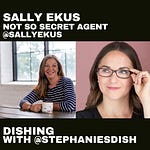
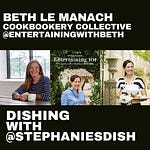
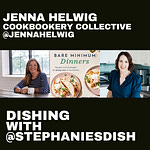


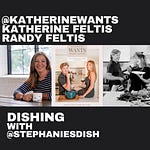
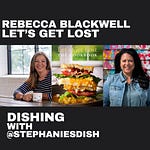
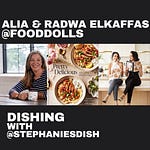
Share this post